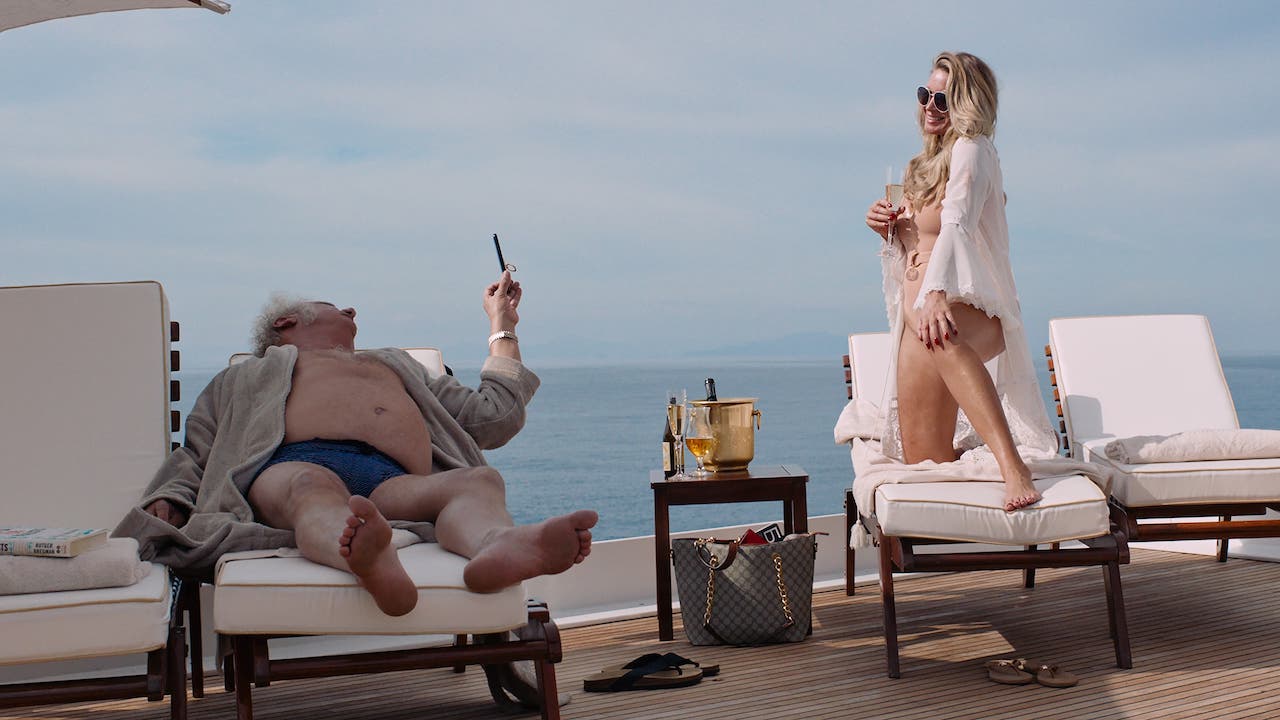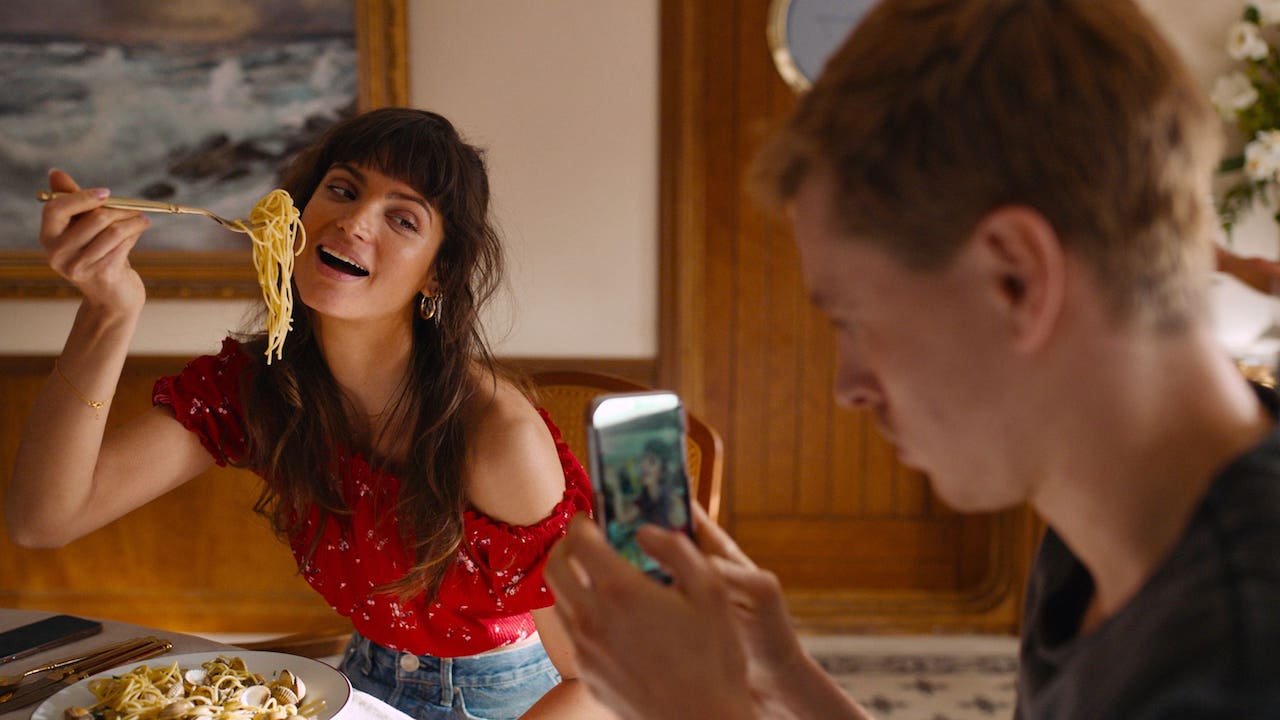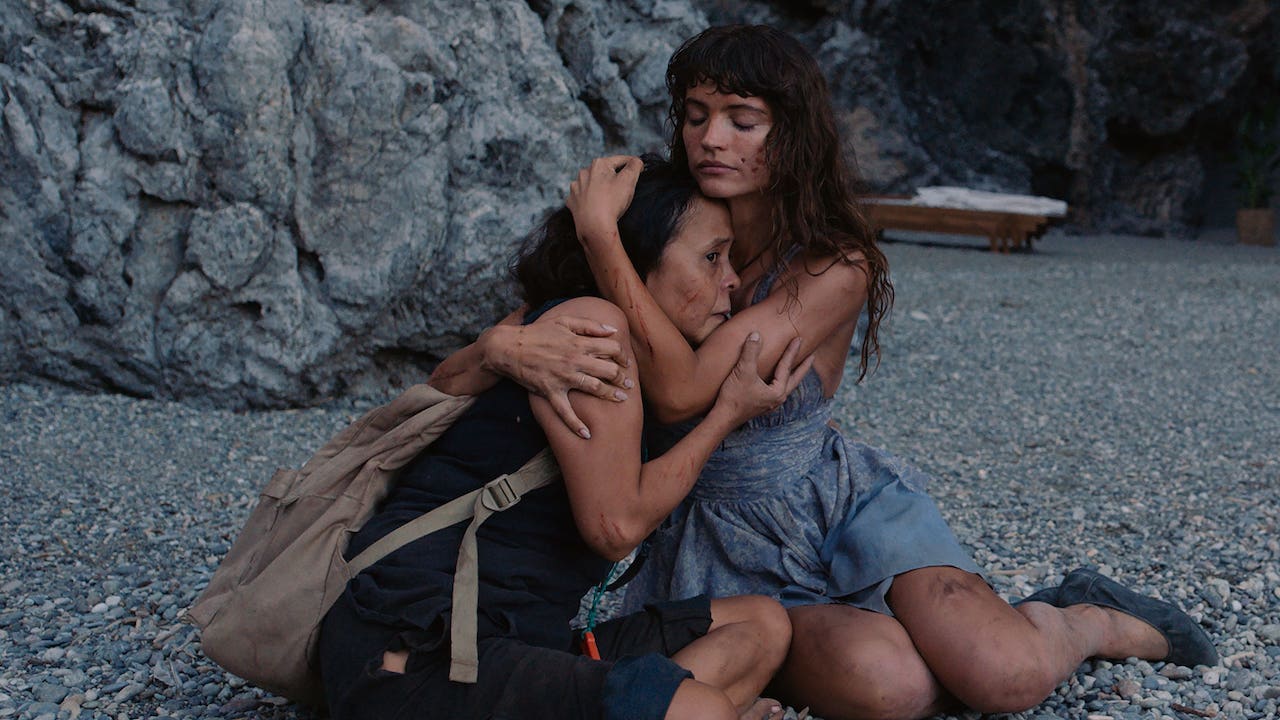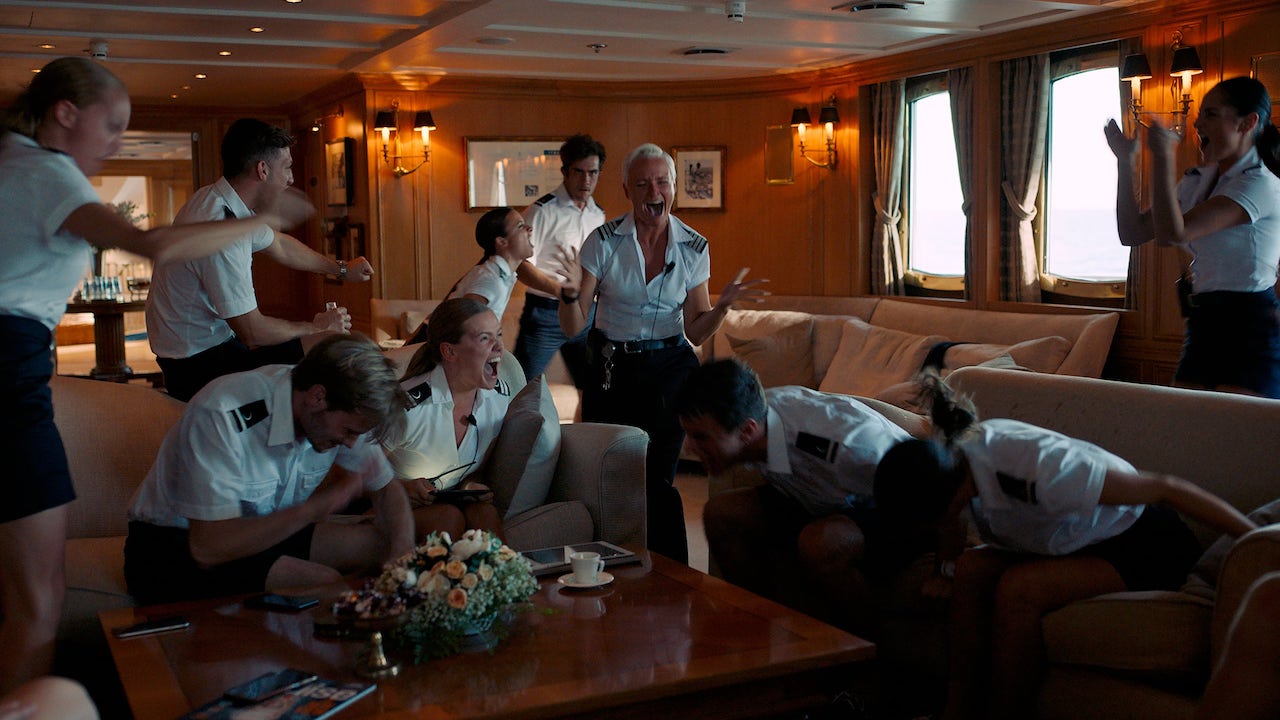Cannes winner Triangle of Sadness punches up with gross-out ‘eat the rich’ humour

Film fest crowds went wild for the outrageous scenes of rich folk vomiting and pooping as their superyacht goes down in Triangle of Sadness. Eliza Janssen is mostly delighted by the movie’s hilarious schadenfreude + slapstick, even if it overstays its welcome.
This year, we haven’t just seen film and TV characters eating the rich: they’ve slurped every last bit of one-percenter bone marrow with no leftovers in sight. The latest season of Succession, the decadent black comedy of The Menu, and a new round of vacationer schadenfreude in The White Lotus’ latest chapter all show that normie viewers are happy to see our moneyed overlords suffer, emotionally and often fatally.
Perhaps the most prestigious title in the 2022 trend is this year’s Palme d’Or winner at Cannes, from director Ruben Östlund. He’s increasingly gone broader and nastier with his satire since the chilly gender politics of Force Majeure. The Square was an art-world critique that took straight-forward shots at elitism and pretension, but it’s subtle as hell compared to the blunt-force laughs of his latest, Triangle of Sadness.
I’m somewhat surprised audiences at the world’s most haughty, ovation-ready film festival were so ready to award this relatively simplistic black comedy. Maybe it’s the same form of rich white guilt that got Parasite its refreshing batch of Academy Awards. Regardless, Triangle of Sadness is designed to make the haves and the have-nots both belly-laugh with a blend of gross-out humour, ever-increasing survival stakes, and archetypal rateable characters shamelessly put through the wringer.
Triangle of Sadness is neatly divided into three acts. The first shows a petty lovers’ quarrel between ridiculously good-looking models Yaya (Charlbi Dean Kriek) and Carl (Harris Dickinson). She’s doing slightly better than him after he fails to book a sexy topless shoot, partially because his ‘triangle of sadness’ (the utterly meaningless space between his brows and forehead, a casting director explains) isn’t relaxed enough. Their squabble over who pays for their extravagant dinner ends with a reconciliation that we totally know will get its limits tested again.
The social media mannequins fade into the background a little in the film’s uproarious middle, a tour around the luxury yacht captained by an existentially-distressed, left-leaning captain Woody Harrelson. There’s plenty of little jabs at upper-class cluelessness you might overhear on a cruise or at a fancy charity dinner—one especially irritating rich Karen asks Harrelson if the ship’s sails can be cleaned for aesthetic purposes, only to disagree with him when he replies that the ship is fully motorised and does not have sails.

A gut-deep sense of dread—and hilarity—sets in when the boat begins to rock on rough waters, and the movie’s earlier glamour gives way to scenes of shit, vomit, and sea water infiltrating the uber-rich vessel’s interiors. Hostile outsiders take over, and an oblivious pair of war profiteers are momentarily charmed that one of the grenades destroying the ship was manufactured by their weapons company…before Östlund cuts to a wide shot of their product blowing them to pieces. You get it.
At 147 minutes, the movie then overstays its welcome with an extended, nightmarish Lord of the Flies parody, showing how our pampered survivors are completely useless at the basic tasks of finding food and shelter. Here’s where Filipina actress Dolly de Leon earns the Best Supporting Actress nods she’s already accrued, getting my cinema’s biggest laugh with her “I’m the captain now” moment.

Formerly a humble maid, she quickly turns ruthless when her fragile former clients are at her mercy, getting the film’s final mean-spirited scene in a twisted commentary of act one’s discussion of what we, as humans, are morally compelled to provide for one another. Anything can become a transactional token of worth: sex, labour, promises of future capital.
It all works to upsetting, very funny effect as a black comedy, and the cast brings an admirable sense of plausibility to their fairly two-dimensional characters. But I remain suspicious of the movie’s success at Cannes, and probably in whatever Oscars it picks up: the jokes lack nuance and it all ends on too broad a political note, a problem I also had with the incohesive The Menu.

In a manner a bit too similar to its ignorant bourgeois characters, Triangle of Sadness is content to sit back and gawk at surface-level misery without incisively looking deeper. That middle act, though: schadenfreude and slapstick combine to make any viewer regurgitate big laughs.



















